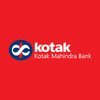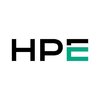Finance Intern
80+ Finance Intern Interview Questions and Answers

Asked in HDFC Bank

Q. What you think of our countries current economic condition ?
The country's current economic condition is stable but facing challenges.
The GDP growth rate has slowed down in the past year.
Unemployment rate has increased slightly.
Inflation is under control but rising prices of essential commodities are a concern.
Government policies and reforms are being implemented to boost economic growth.
Exports have been affected by global trade tensions.
Stock market performance has been volatile.
Foreign direct investment has shown positive growth.
Inc...read more
Asked in CWM Company

Q. Who are some well-known figures in the stock market?
Warren Buffett, George Soros, Peter Lynch, Benjamin Graham are some famous persons of share market.
Warren Buffett is known as the Oracle of Omaha and is one of the most successful investors of all time.
George Soros is a hedge fund manager and philanthropist who famously made a billion dollars in a single day by shorting the British pound.
Peter Lynch is a former mutual fund manager who is known for his investment strategy of 'investing in what you know'.
Benjamin Graham is cons...read more
Finance Intern Interview Questions and Answers for Freshers

Asked in HDFC Bank

Q. What is a merger and acquisition?
A merger and acquisition is a corporate strategy involving the combination of two or more companies into a single entity.
Mergers and acquisitions are commonly used to achieve growth, diversification, or synergy.
A merger occurs when two companies agree to combine their operations and assets to form a new company.
An acquisition happens when one company purchases another company, becoming its new owner.
Mergers and acquisitions can be friendly or hostile, depending on the agreeme...read more

Asked in Haleon

Q. How would you handle a stakeholder delivering content past the deadline?
Communicate with the stakeholder to understand the reason for the delay and work together to find a solution.
Initiate a conversation with the stakeholder to discuss the missed deadline and understand the reasons behind it.
Express the importance of timely delivery of contents and the impact of the delay on the project.
Collaborate with the stakeholder to come up with a plan to mitigate the delay and ensure timely delivery in the future.
Set clear expectations and deadlines for f...read more

Asked in Haleon

Q. What KPIs do you look into when analyzing financial statements and income statements?
Key Performance Indicators (KPIs) for analyzing financial statements include profitability ratios, liquidity ratios, and efficiency ratios.
Profitability ratios such as return on assets (ROA) and return on equity (ROE) measure the company's ability to generate profit from its assets and equity.
Liquidity ratios like current ratio and quick ratio assess the company's ability to meet short-term obligations with its current assets.
Efficiency ratios like asset turnover ratio and in...read more

Asked in HDFC Bank

Q. Why is it important to calculate the P/E Ratio?
The P/E ratio is calculated to assess the relative value of a company's stock by comparing its price to its earnings.
P/E ratio helps investors determine if a stock is overvalued or undervalued.
A high P/E ratio suggests that investors have high expectations for future earnings growth.
A low P/E ratio may indicate that a stock is undervalued or that the company is facing challenges.
P/E ratio is commonly used in fundamental analysis to compare companies within the same industry.
F...read more
Finance Intern Jobs




Asked in Indian Railways

Q. What is taxation? What are your future goals? Why finance
Taxation is the process of collecting money from individuals and businesses by the government to fund public services.
Taxation is an important source of revenue for the government to fund public services like healthcare, education, and infrastructure.
It is mandatory for individuals and businesses to pay taxes on their income, property, and goods and services they purchase.
The tax system varies from country to country and can be progressive, proportional, or regressive.
Future ...read more

Asked in StarFing

Q. What is share? Who is our finance minister? What is mutual fund?
Share is a unit of ownership in a company. Our finance minister is Nirmala Sitharaman. Mutual fund is a type of investment where money is pooled from multiple investors to invest in various securities.
Share represents a portion of ownership in a company
Finance minister of India is Nirmala Sitharaman
Mutual fund is a type of investment where money is pooled from multiple investors
Mutual funds invest in various securities such as stocks, bonds, and money market instruments
Invest...read more
Share interview questions and help millions of jobseekers 🌟


Asked in Target Edge

Q. Have you utilized any accounting software, and if so, which ones?
I have experience with accounting software like QuickBooks and Excel, which help in managing financial data and reporting.
QuickBooks: I used QuickBooks for managing invoices, tracking expenses, and generating financial reports, which streamlined our accounting processes.
Excel: I frequently utilized Excel for budgeting and financial analysis, leveraging functions and pivot tables to analyze data effectively.
Sage: I have also worked with Sage for payroll processing and financia...read more
Asked in Arth Vritt Capital

Q. Can you explain some examples of mergers and acquisitions (M&A) deals?
Mergers and acquisitions involve companies combining or one buying another to enhance growth and market presence.
Disney acquired 21st Century Fox in 2019 for $71.3 billion, expanding its content library and market reach.
In 2016, Microsoft purchased LinkedIn for $26.2 billion, integrating professional networking with its software services.
Amazon's acquisition of Whole Foods in 2017 for $13.7 billion allowed it to enter the grocery sector and enhance its delivery services.
The m...read more

Asked in Finoability

Q. How did you develop your interest in Finance?
My interest in finance grew from a blend of academic exposure and personal experiences with investments and economic trends.
Studied economics in high school, which sparked my curiosity about market dynamics.
Participated in a stock market simulation game, where I learned about trading strategies and risk management.
Interned at a local bank, gaining hands-on experience in financial analysis and customer service.
Attended finance workshops and seminars, connecting with profession...read more
Asked in Marwadi Food Corner

Q. Do you know about Venture capitalists & Private Equity?
Venture capitalists & Private Equity are investors who provide funding to startups and companies in exchange for equity.
Venture capitalists invest in early-stage startups with high growth potential
Private equity firms invest in established companies with the aim of improving their operations and profitability
Both types of investors provide funding in exchange for equity ownership in the company
Venture capitalists typically invest smaller amounts of money compared to private e...read more

Asked in Target Edge

Q. What practical knowledge do you have regarding accounting and finance?
I have gained practical knowledge in accounting and finance through coursework, internships, and hands-on projects.
Completed coursework in financial accounting, covering topics like balance sheets and income statements.
Interned at a local accounting firm, assisting with tax preparation and client financial analysis.
Utilized Excel for budgeting and forecasting, creating models to project cash flows for a mock business.
Participated in a finance club, where I analyzed stock mark...read more

Asked in Kotak Mahindra Bank

Q. Tell me something that is not mentioned in your CV.
I have a passion for photography and have won a few local competitions.
I have been practicing photography as a hobby for the past 5 years
I have won first place in a local photography competition for landscape photography
I also enjoy portrait photography and have done a few shoots for friends and family
I believe my attention to detail and creativity in photography translates well to finance

Asked in Medica Superspecialty Hospital

Q. What are the tax implications for the hospital sector?
Hospital sector is subject to various tax implementations.
Hospitals are exempted from paying income tax under Section 11 of the Income Tax Act.
Goods and Services Tax (GST) is applicable on healthcare services provided by hospitals.
Customs duty is levied on imported medical equipment and devices.
Property tax is applicable on the land and buildings owned by hospitals.
Excise duty is applicable on certain medical supplies and equipment.
Tax incentives are provided to hospitals for...read more

Asked in Better.com

Q. What is tds and how to use excel
TDS stands for Tax Deducted at Source. Excel can be used to calculate TDS amounts and generate reports.
TDS is a tax deducted by the payer at the time of making payment.
Excel can be used to calculate TDS amounts based on specified rates and generate reports for TDS deductions.
Formulas in Excel can be used to calculate TDS amounts automatically based on income and tax rates.
Excel can also be used to create TDS certificates for employees or vendors.
Using Excel functions like SUM...read more

Asked in Finoability

Q. Tell me the difference between Accounting and Finance.
Accounting focuses on recording and reporting financial transactions, while Finance deals with managing assets and liabilities.
Accounting involves recording, classifying, and summarizing financial transactions.
Finance focuses on managing assets, liabilities, and investments to achieve financial goals.
Accounting provides historical financial information, while Finance uses this information to make future financial decisions.
Accounting is more about compliance and accuracy, whi...read more

Asked in Finoability

Q. Tell me the difference between Wealth Management & Portfolio Management.
Wealth management focuses on overall financial planning and goals, while portfolio management is more focused on managing investments within a portfolio.
Wealth management involves comprehensive financial planning, including retirement planning, tax planning, and estate planning.
Portfolio management involves selecting and managing investments within a portfolio to achieve specific financial goals.
Wealth management takes a holistic approach to a client's financial situation, wh...read more

Asked in Poshs Metal Industries

Q. 1) Golden rules of accounting? 3) Tell something about GST?
Golden rules of accounting are basic principles to maintain financial records. GST is a tax system implemented in India.
Golden rules of accounting are: a) Debit the receiver, credit the giver b) Debit what comes in, credit what goes out c) Debit all expenses and losses, credit all incomes and gains
GST stands for Goods and Services Tax, a tax system implemented in India in 2017
GST replaced multiple indirect taxes like VAT, service tax, excise duty, etc.
GST has 4 tax slabs - 5%...read more

Asked in Tube Investments of India

Q. What is the difference between Finance and Accounting?
Finance focuses on managing assets and investments, while accounting deals with recording and reporting financial transactions.
Finance is concerned with the future and involves planning and managing investments, e.g., portfolio management.
Accounting focuses on the past and involves tracking financial transactions, e.g., preparing financial statements.
Finance includes activities like budgeting, forecasting, and risk management, e.g., analyzing market trends.
Accounting includes...read more

Asked in Finoability

Q. What is the difference between Wealth management and Portfolio management?
Wealth management focuses on holistic financial planning, while portfolio management emphasizes investment strategies and asset allocation.
Wealth management encompasses a broad range of financial services, including estate planning, tax advice, and retirement planning.
Portfolio management is primarily concerned with managing investment portfolios to achieve specific financial goals.
Wealth managers often cater to high-net-worth individuals and families, providing personalized ...read more

Asked in Crisil

Q. Demonstrate your technical knowledge of MS Office.
Proficient in MS Office, including Excel for data analysis, Word for documentation, and PowerPoint for presentations.
Excel: Use formulas like VLOOKUP and pivot tables for data analysis.
Word: Create professional documents with styles, headers, and footers.
PowerPoint: Design engaging presentations with animations and transitions.
Excel: Utilize charts to visually represent data trends.
Word: Implement mail merge for personalized document creation.

Asked in Finoability

Q. What is the difference between Portfolio Management and Wealth Management?
Portfolio management focuses on investment strategies, while wealth management encompasses broader financial planning and services.
Portfolio management primarily deals with managing investments in stocks, bonds, and other assets to achieve specific financial goals.
Wealth management includes investment management but also offers financial planning, tax advice, estate planning, and retirement planning.
For example, a portfolio manager might focus on maximizing returns on a clien...read more
Asked in CWM Company

Q. What are some recent major news events related to the stock market?
GameStop stock surge and subsequent fall due to Reddit group's coordinated buying.
GameStop stock price surged from $20 to $347 in January 2021
Reddit group r/WallStreetBets coordinated buying of GameStop stock
Hedge funds lost billions due to short positions on GameStop
Robinhood and other trading platforms restricted buying of GameStop stock
GameStop stock price fell to around $40 in the following weeks

Asked in Medica Superspecialty Hospital

Q. Tell me about the new Tax regime?
The new tax regime was introduced in India in 2020, offering taxpayers the option to choose between the old and new tax slabs.
The new tax regime has lower tax rates but fewer deductions and exemptions.
Taxpayers can choose between the old and new tax regimes based on which one is more beneficial for them.
The new tax regime is aimed at simplifying the tax structure and reducing the tax burden on taxpayers.
The new tax regime has seven tax slabs, ranging from 5% to 35%.
Some of th...read more

Asked in ONE BCG

Q. What are the different TDS Rates and their Sections?
TDS rates vary based on the type of income and are governed by different sections of the Income Tax Act.
TDS rate for salary income is as per the individual's tax slab
TDS rate for interest income is usually 10%
TDS rate for rent income is 10% if the annual rent exceeds Rs. 2.4 lakhs
TDS rate for professional fees is 10%
TDS rate for commission income is 5%

Asked in Dev Mantra Financial Services

Q. Why did you choose valuation as your domain?
I chose valuation as my domain because of my interest in analyzing financial statements and understanding the true worth of a company.
I have a strong background in accounting and finance, which has given me a solid foundation in financial analysis.
Valuation is a critical aspect of finance, as it helps investors make informed decisions about which companies to invest in.
I find it fascinating to analyze financial statements and understand the underlying factors that drive a com...read more

Asked in Intrepid Travel

Q. How do you use the VLOOKUP formula in Excel?
VLOOKUP is a function in Excel used to search for a value in a table and return a corresponding value from another column.
VLOOKUP stands for vertical lookup.
It is commonly used to find specific data in large datasets.
The formula requires four arguments: lookup value, table array, column index number, and range lookup.
The lookup value is the value you want to search for.
The table array is the range of cells where the data is located.
The column index number is the column from w...read more
Asked in Malhar Fashion

Q. What is TDS and how can we calculate it?
TDS stands for Tax Deducted at Source. It is a tax deduction made at the time of payment.
TDS is deducted by the payer and deposited with the government on behalf of the payee.
The rate of TDS varies depending on the type of payment and the nature of the transaction.
TDS can be calculated by applying the applicable TDS rate on the total payment amount.
For example, if the TDS rate is 10% and the payment amount is $1,000, the TDS amount would be $100.

Asked in Prabhudas Lilladher

Q. What is your understanding of the term finance?
Finance refers to the management of money and investments, including budgeting, saving, lending, and investing.
Finance involves managing money and investments
It includes activities such as budgeting, saving, lending, and investing
Finance helps individuals and organizations make informed financial decisions
Examples of finance include personal budgeting, corporate finance, and investment banking
Interview Questions of Similar Designations
Interview Experiences of Popular Companies






Calculate your in-hand salary
Confused about how your in-hand salary is calculated? Enter your annual salary (CTC) and get your in-hand salary


Reviews
Interviews
Salaries
Users










